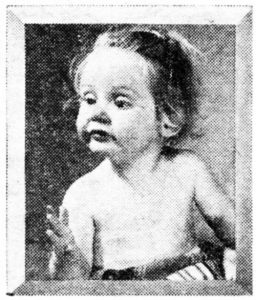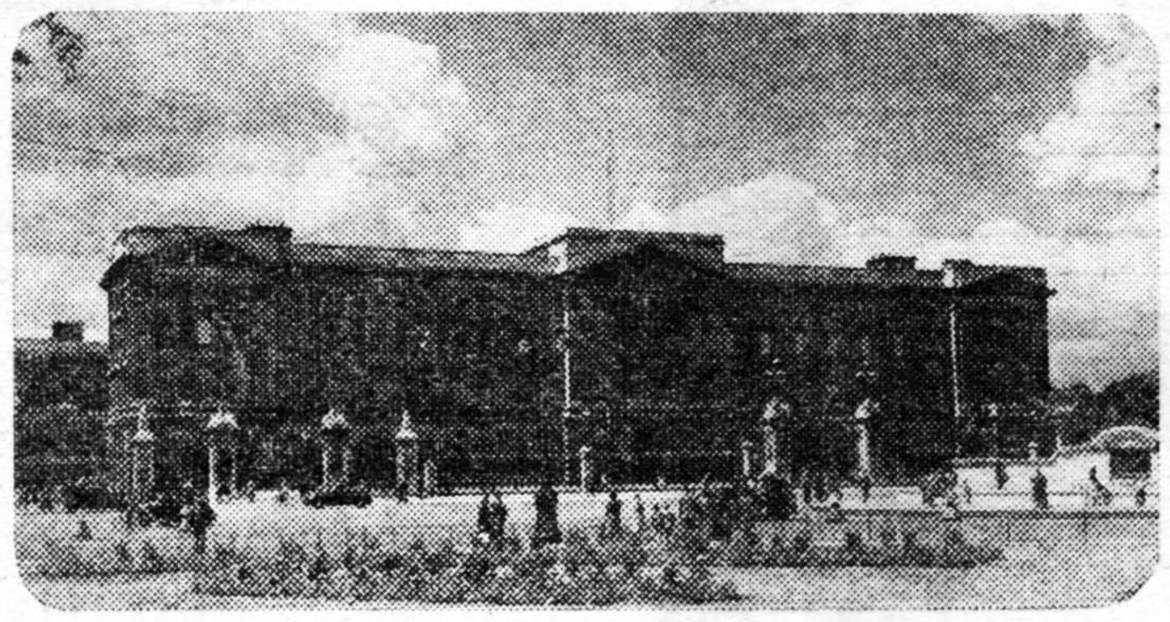
The Palace gets the new TV
BUCKINGHAM PALACE is to get the new TV. The order has gone out that all sets at the Palace must be capable of receiving Independent Television programmes when the Queen and the Duke of Edinburgh return from their Balmoral holiday.
The Royal family have always been keen viewers and now — at the turn of a switch — they will be able to see the star-studded, vigorous shows produced by the London programme contractors.
A member of the Palace staff told me: “It is inconceivable that the Royal family, interested as they are in public affairs, would not have at their finger-tips an alternative TV programme.”
The Duke’s quiz
And I hear of an interesting conversation the other day between the Duke of Edinburgh and Sir William Becher, M.C., Associated-Rediffusion’s cricket adviser.
They were opposing cricketers in a charity match, but cricket was by no means the only topic discussed.
The Duke proved to be intensely interested in Independent TV, quizzing Sir William for much information on the subject.
Says Sir William, the former Sussex and Wiltshire cricketer: “The Duke has a typically modern, democratic brain and always shows terrific interest in anything that is new and enterprising.”
At the Palace, Sandringham, and Windsor, the Queen makes a point of sitting with Prince Charles and Princess Anne to watch the children’s programmes.
U.S. looks in

Eighty TV editors, from newspapers in all parts of America, have just flown home. They have been touring the British TV studios and are now reporting to their readers what they have seen.
From the questions they have been asking in England, it seems that many people on the other side of the Atlantic are envious of our advertising plans.
You see, in America, the advertisers sponsor the programmes themselves: for example, a soup manufacturer sets up a special department to produce plays for TV.
But in England the programmes are completely independent — time is sold to advertisers rather like a newspaper sells space alongside the news.
And that, think many in America, is a better idea than the “sponsoring” system.
Cool kids
PRESS photographers at the filming of a “Noddy” programme urged that children should appear in the pictures with the puppet.
So producer Quentin Lawrence phoned to his wife Margaret (“Ming”) at their Hampstead home: “Bring the kids — quick.”
Duly Mrs. Lawrence arrived with “Tiny,” aged four and Christopher, aged five. They had the time of their lives posing with Noddy, their favourite story-book character.
It was a very warm day and I wondered how “Ming” had managed to keep the children so clean and tidy.
“Well, I had to hunt for them,” she said. “And when I tracked them down they were clean already. They were completely naked, standing in the spray from the garden hose.”
Pat knows
IF pretty Pat Fender, a commere of Morning Magazine, ever has a cricketer to interview she’ll be asking questions to which she already knows the answers.
For dark-haired, 25-year-old Pat is the daughter of P. G. H. Fender, skipper of Surrey’s cricket XI for eleven years.
She plays cricket occasionally herself, and helped to “put on the map” a women’s cricket team in New York last year when she was acting, announcing, and commentating for American TV.
She is unmarried and lives with her parents in a little street behind Park Lane.
Miss Fender has this confession to make: after giving the subject long and serious thought, she considers that cricket is NOT a woman’s game.
Still in harness
WHAT a surprise for the great Dan Leno if he could see the Granville today.
The Granville is the old music hall at Walham Green, London, which Leno helped to found and where he appeared regularly. Now it has been bought by Associated-Rediffusion and converted into a modern television theatre.
But the best has been retained. For example, the walls of beautifully painted tiles are still there.
The flooring was ripped up, though. And under the carpeting one of the workmen found a golden guinea.
Oh, my nose!
NOSES are very important, and the nose of Orson Welles is no exception. He pays it great attention.
Sometimes he gets a little exasperated, hides his own beneath a false nose. Asked why, he once replied:
“I hate my nose — it stopped growing when I was ten years old.”
Baby grand
OWING to rebuilding at Television House ABC’s “Week-end” programme has a temporary studio too small to contain a grand piano.
“It would have meant us all standing out in the street to do the programme,” explains producer Stephen Wade. “An upright was not suitable so we sent our musical director, Leslie Julian Jones, round London trying out miniature pianos.”
Says Leslie, who writes a sketch for the programme as well as playing the piano, “It took a long time, but at last I found one small enough — and it also had the right tone for television.”

